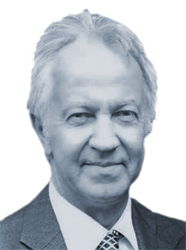 Those ambitious power-brokers who fancy succeeding Mohamed Bin Hammam as president of the Asian football confederation have been given a first green light to raise their heads above the campaigning parapet.
Those ambitious power-brokers who fancy succeeding Mohamed Bin Hammam as president of the Asian football confederation have been given a first green light to raise their heads above the campaigning parapet.
Jockeying for position had already begun behind the scenes. Serious thought will turn to manifesto-building now the Court of Arbitration for Sport has rejected an initial bid by the Qatari to block the AFC’s nomination of China’s Zhang Jilong for his old top jobs.
This CAS decision, pending a full hearing, may also raise a concern in Bin Hammam’s camp that his appeal against FIFA’s life ban from all football activities may not receive the sympathetic treatment he says he is expecting.
Bin Hammam was kicked out of football in July over bribery allegations concerning the presidential campaign conference he attended in Trinidad in May, hosted by the Caribbean Football Union and organised by the then CONCACAF president Jack Warner.
The AFC reacted by appointing Zhang, its senior vice-president, to Bin Hammam’s positions as AFC president and FIFA delegate in an acting capacity since its statutes mean elections cannot be held until its next congress in May of next year.
Bin Hammam, resisting pressure to resign while he takes his appeal through all the courts, went to CAS to stop the AFC, in effect, usurping his notional authority.
Now the AFC has published CAS’s “procedural award” in its favour. CAS also made it clear that this decision is not subject to appeal. If Bin Hammam is unsuccessful in the full hearing his only option will be to take up the so-called ‘Sion Option’ and fight on in the Swiss civil courts – in parallel with his appeal to CAS against his FIFA ban.
Welcoming the interim decision by CAS, the AFC says it is “confident of its prospects of success at the CAS hearing on the merits of the appeal” [Full AFC statement below**].
Meanwhile, the long-term runners and riders have started to emerge. Zhang, having been initially reluctant to consider the idea of being president long-term, is reported to be one of them; another is the United Arab Emirates’ Yousuf Al Sarkal; and still another is Bahrain’s Shaikh Salman bin Ibrahim bin Hamad Al Khalifa.
Al Sarkal, another AFC vice-president, is being openly backed for the Bin Hammam succession by Mohammad Khalfan Al Rumaithi, his own football association’s president
Al Rumaithi says: “The UAE FA will back Yousuf Al Sarkal in his endeavour to be the next president of the AFC . . . Since he is from the UAE it is our duty to support his candidature and ensure his success at the next elections.”
The campaigning power of Bahrain’s Shaikh Salman has been enhanced by his appointment to FIFA’s 2014 World Cup organising committee, at a delicate time when relations between FIFA and Dilma Rousseff’s Brazilian government appear to be unravelling fast.
Two years ago Shaikh Salman ran Mohamed Bin Hammam closely in a bitterly-fought election for his FIFA exco place. Shaikh Salman is secretary-general of the General Organisation of Youth and Sport (GOYS), first deputy president of the Bahrain Olympic Committee and president of the Bahrain Football Association.
The other AFC vice-presidents are Ganesh Thapa (Nepal), Moya Dodd (Australia) and Prince Abdullah Bin Sultan Ahmad Shah (Malaysia).
They may want to pursue the presidency BUT they could not take over Bin Hammam’s FIFA exco presence since he was there as representative of West Asia. It is an oddity of the exco set-up that the AFC president, per se, does not benefit from an automatic place at the world federation’s high table.
Notionally, a ‘West Asian’ could stand for both the AFC presidency and the FIFA seat; any other Asian candidate could stand for the presidency; and any other ‘West Asian’ could stand for ‘just’ the FIFA job.
That, of course, as with like the dual 2018 and 2022 World Cup decisions, raises the prospect of highly complex negotiations behind the electoral scenes.
Then, of course, if Bin Hammam loses his substantive case before CAS the Swiss courts may not get around to hearing his further appeal before the AFC election next spring, throwing a further spanner into the works.
And, for good or ill, every time his head pops up it brings with it a renewed review and reminder of the entire controversial context of the World Cup and FIFA presidential processes.
** Full AFC statement:
“””On 30 September 2011, the Court of Arbitration for Sport (CAS) in Lausanne (Switzerland) rejected an appeal on provisional measures filed by Mohamed Bin Hammam on 19 August 2011 against the Asian Football Confederation (AFC).
Since the decision of the FIFA Ethics Committee on 29 May 2011 to provisionally ban Mr Bin Hammam from all football activities worldwide, AFC Acting President Zhang Jilong has deputised carrying out the daily duties and responsibilities of the AFC President as prescribed by the AFC Statutes.
And, following the FIFA Ethics Committee decision of 23 July 2011, which banned Mr Bin Hammam from all football activity for life, Mr Jilong was confirmed by the AFC Executive Committee unanimously as the AFC delegate to the FIFA Executive Committee. Mr Bin Hammam’s life ban was confirmed by the FIFA Appeals Committee on 15 September 2011.
The CAS appeal of Mr Bin Hammam challenged Mr Jilong’s designation as AFC Acting President, and nomination by the AFC Executive Committee to the FIFA Executive Committee. Mr Bin Hammam requested the CAS to annul the AFC Executive Committee’s decision and recognise only himself (Mr Bin Hammam) as the AFC President and representative on the FIFA Executive Committee.
Mr Bin Hammam also requested a stay order (provisional measures) pending the final CAS hearing.
AFC has strictly followed the AFC Statutes at all times in relation to Mr Jilong’s designation as AFC Acting President and nomination to the FIFA
Executive Committee. Hence, AFC welcomes the CAS decision on provisional measures and is confident of its prospects of success at the CAS hearing on the merits of the appeal.
The CAS decision to dismiss Mr Bin Hammam’s request for a provisional stay is a procedural order and not an award, meaning that it is not subject to further appeal.”””
By Keir Radnedge






